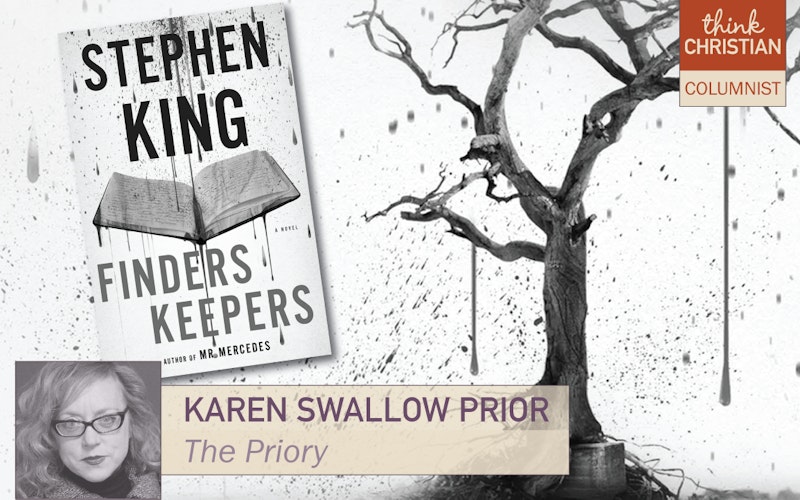
Culture At Large
Stephen King’s Finders Keepers and the place of great literature
Stephen King was among those honored at the White House earlier this month with a National Medal of Arts for their contributions to the arts and humanities. King certainly contributed to my own love of reading. Beginning with Carrie and lasting through The Stand, my vapid, stimulant-seeking teenage self adored King-style gore until I became an English major in college and acquired a taste for finer literature.
While his early career was built on horror, King has broken out of that genre on occasion, most recently into detective fiction. So when I recently discovered the joy of using Audible on my daily runs to listen to lighter fare and skillfully narrated books, I decided to return to Stephen King by listening to Mr. Mercedes and its follow-up Finders Keepers, which was published this summer.
Expecting little more than entertainment, I found that Finders Keepers took me by surprise. It couldn’t help but be a bit literary, given that the plot revolves around the murder of a great American novelist by a troubled fan. It turns out that the fan was angry that the author’s final novel turned its hero into a sellout to a corrupt version of the American dream. So in addition to the suspense of a tightly structured mystery plot, Finders Keepers offers a story, as its publisher describes, “about how literature shapes a life - for good, for bad, forever.”
It’s easy for people to become subordinate to art.
The young hero of the story, Pete Saubers, has possession of the priceless notebooks containing the last unpublished manuscript of the murdered novelist. At a crucial moment, Pete realizes that the fictional character at the center of the author’s novels is “real” to the villain in a way that actual human beings are not. Pete then ponders the “core power of make-believe,” the same power which “caused thousands to weep when they learned that Charles Dickens had died of a stroke.” Pete realizes that it is this same power that led the murderer down his path: “He did it out of his own core belief: that the writing was more important than the writer.” This epiphany leads Pete (spoiler alert) to sacrifice the priceless notebooks in order to save a life - because people are more important than art.
Since the latter half of the 19th century, when doubt and scientism took root in our culture, art and aesthetic experience have been proffered as the replacement for religious faith. In the current day, when the line between reality and virtual reality grows blurrier, it’s easy for real people to become subordinate to art - and not only the art of great literature, sculpture, music and painting, but even the arts of blogging, gaming and platform-building.
For those, like me, whose lives are centered on cultivating and valuing the great works of humankind, King’s novel offers a surprising but needed reminder of the wisdom of Ecclesiastes: “I have seen all the things that are done under the sun; all of them are meaningless, a chasing after the wind.” Art itself - no matter how sublime, enchanting or beautiful - is but a vapor in comparison to the flesh-and-blood creations made in the image of God. “Not marble, nor the gilded monuments of princes” shall outlive God’s powerful rhyme.
Topics: Culture At Large, Arts & Leisure, Books